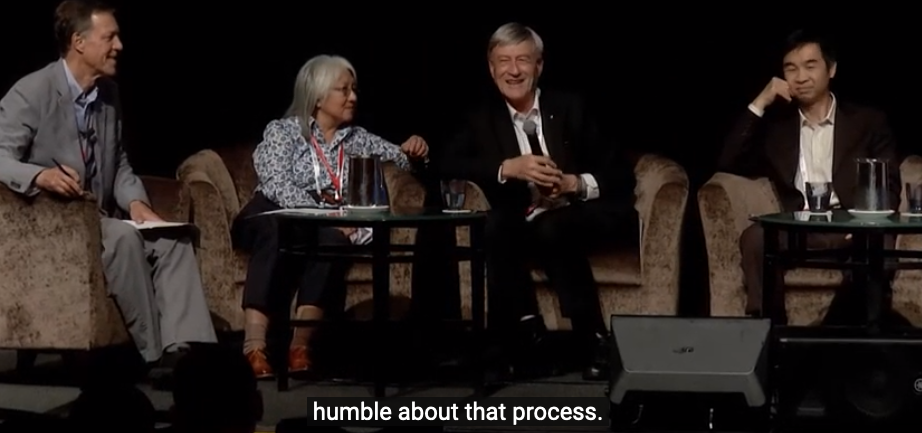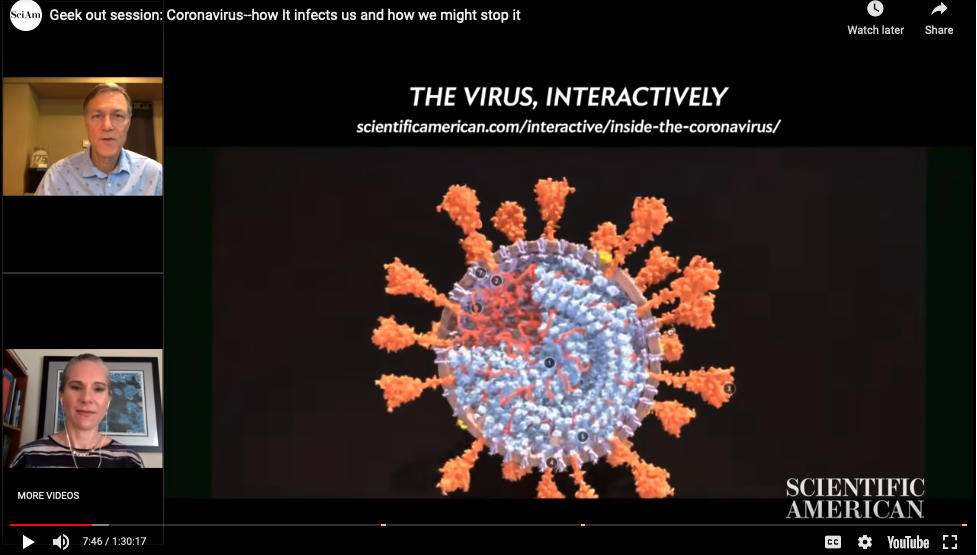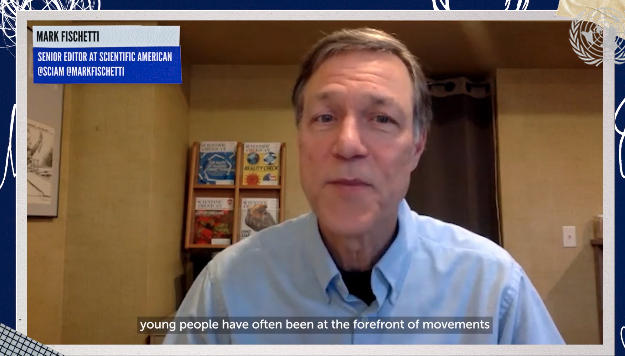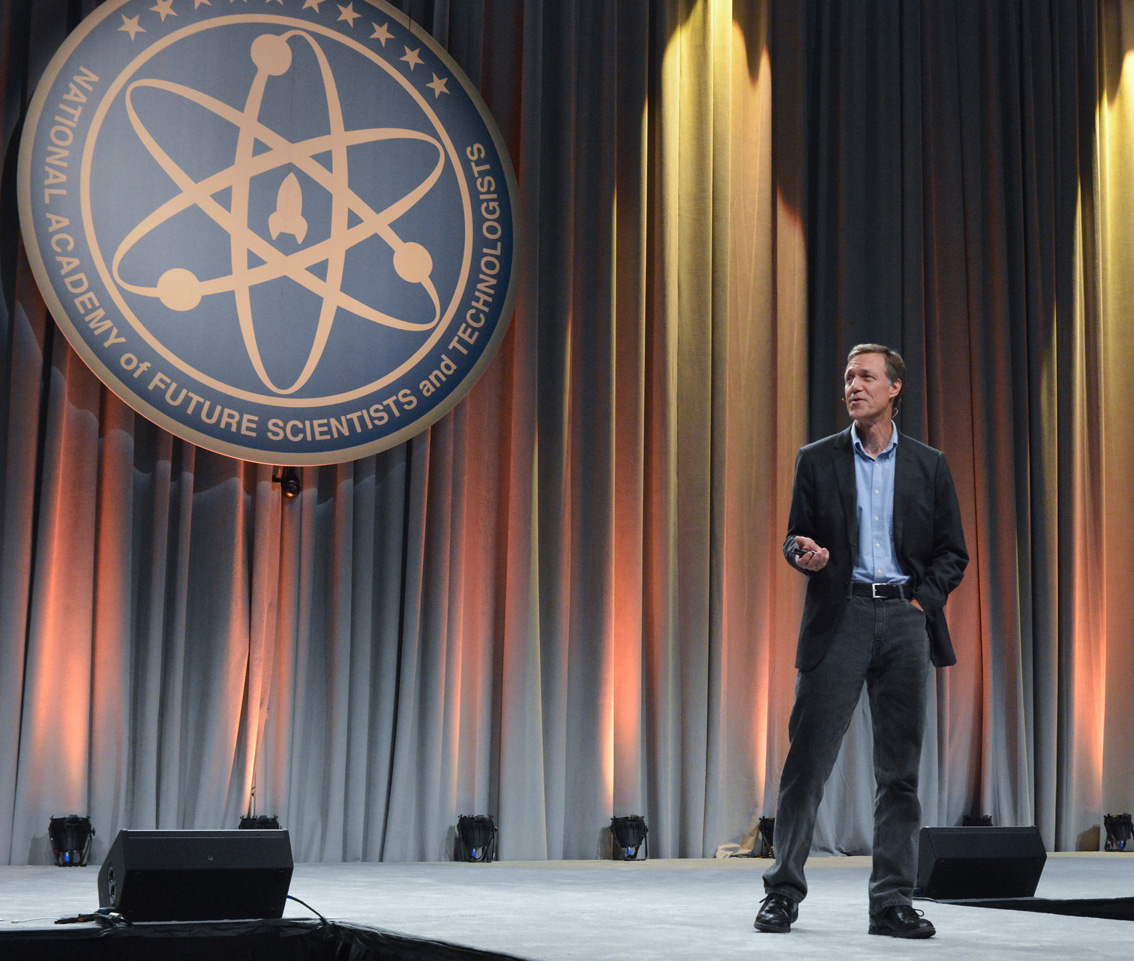Mark Fischetti
Scientific American
Citation
I had the privilege of nominating Mark Fischetti for the Robert C. Cowen Award for Sustained Achievement in Science Journalism. Mark has had a distinguished career as a science journalist and editor as well as a mentor. For those who don’t know, Mark has overseen coverage of Earth and climate science at Scientific American for 15 years now. He and I worked together for nearly a decade coordinating this coverage for both the print magazine and website. Over that span, he edited a number of my own stories as well — and yet we’re still friends. He has consistently been a leader in clearly and compellingly conveying scientific discovery in Earth and climate science as well as presenting solutions to some of the world’s most pressing environmental challenges. Over his career Mark has distinguished himself in three particular areas: being ahead of the curve in breaking scientific news, helping scientists write popular articles and investigating solutions to environmental challenges. What do I mean? In 2001 he wrote “Drowning New Orleans,” which predicted the widespread disaster that a major storm would inflict on that city. When Hurricane Katrina sadly did just that in 2005, other members of the media descended upon Mark, calling him “the man who predicted Katrina.” In every interview he emphasized that he did not predict the hurricane, but Earth, ocean and atmospheric scientists had. Mark also helps these scientists write popular articles that are themselves ahead of the curve. These include how warmer oceans are creating stronger hurricanes (Kevin Trenberth, 2007), how to determine the mysterious contribution that clouds make to global warming (Kate Marvel, 2017) and how Arctic changes are altering weather worldwide (Jennifer Francis, 2018). Articles that he wrote himself included the explosion in fracking (2010) and the competition among nations to claim the Arctic seafloor (2019). Along the way he threw in some fun articles too, such as “The Oldest Rocks on Earth” (Carl Zimmer, 2014); “Will We Still Enjoy Pinot Noir?” (Kimberly Nicholas, 2015); and “1,000 Years of Solar Eclipses,” which he wrote in 2017. He also served as founding editor of the Graphic Science page in Scientific American, presenting data visualizations on detection of gravitational waves, lightning hot spots and the fallout from supervolcanoes, to name a few. As you can see, Mark Fischetti exemplifies sustained achievement in science journalism. I am lucky to have worked with him and learned from him.
— David Biello Author of The Unnatural World and Science, Curator for TED Talks
Respsonse
I’m honored to receive the Robert C. Cowen Award for Sustained Achievement in Science Journalism. And I’m honored that my longtime colleague and friend David Biello provided my citation. He hit the important points on the head. I pride myself in uncovering stories long before they attract attention outside the research community, and I’ve been able to do that because of experts like the members of AGU, who are always willing to talk with journalists as an important way to educate the public. When the media was parading me around as “the man who predicted Hurricane Katrina,” in the 20-plus radio and television interviews I did, every time I emphatically said, “I didn’t predict Katrina. Scientist did. Listen to the scientist!”
My other long-term goal is to help scientists communicate their findings to a broad audience. Over the course of my career I’ve seen a transformation — mostly in the past 10 years, largely because of climate change — in scientists’ attitudes about talking with the media and the public. I think many scientists now realize there is a great benefit in speaking up about their work and about what their findings may mean for society. I really encourage this.
Furthermore, given today’s firehose of information, it’s unlikely that the public or the media will somehow happen to “find” the work of a scientist. So we editors at Scientific American try to bring smart work to the forefront by having scientists write for us; about half of our feature articles are authored by scientists. We help such “expert authors” with a lot of editing to make the articles as accessible as possible to the widest audience, hoping to educate the public. The more people know, the more they can make informed decisions — as citizens, workers, employers, influencers, voters and educators.
— Mark Fischetti, Scientific American, New York, New York
Field Photos





